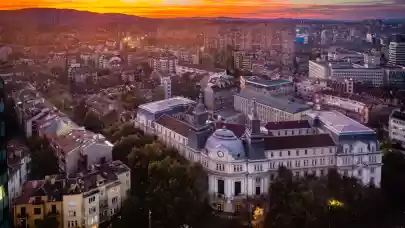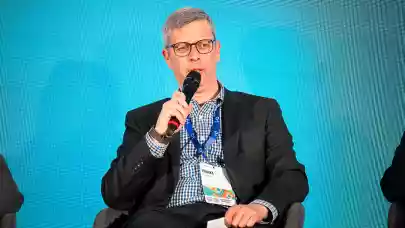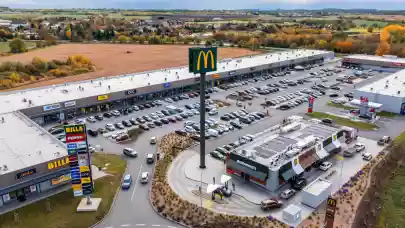
The relocation process of manufacturing and business operations to Bulgaria following the geopolitical pressure gives the country a decent chance of attracting foreign investments. Despite the prediction of a recession in 2023, the expectations are for opportunities in some sectors and for investors to focus on high–quality and sustainable product. The trend is outlined by Colliers in their latest country report.
In the second half of 2022, the total value of investment transactions reached almost €228 million This volume is over 77% of the total for the year. The reason for this is that investors gave themselves time to assess the development of the war in Ukraine and froze their plans. The distribution of investment volume by sector is as follows: 32% of the total volume is due to deals with industrial space, followed by office space and hotels (with 19% each), retail space (15%), development land (11%) and mixed–use buildings (3%). Local investors continue to be active in the Bulgarian market, accounting for 64% of the total volume last year.
IT and outsourcing drive demand for offices
Another takeaway of the report is the strengthened office market activity, with high demand for contemporary space, driven by the IT and outsourcing industry. Working model transformation and the provision of amenities to employees have boosted the demand for flex and coworking spaces, which will remain in 2023. Standard office space will be transformed in terms of functionality, distribution, technologies, interior design, and flexibility. This trend will continue as standard solutions will be replaced by individual ones which correspond to the culture. A relatively low number of new projects were launched in 2022. In view of this and active demand, a shortage of quality office space can be forecast in the midterm. In parallel with the higher demand for green buildings and ecosystems, there has been a growing trend toward increasing investments in sustainable assets (existing and under construction) to comply with ESG policies and regulations. Tenants will be more demanding in that type of working environment. Buildings that are not compliant will have to increase their ESG investments to remain competitive in the market. The supply of Class A and B office space in Sofia reached 2,462,800 sqm during the second half of 2022. This represents an increase of 7% on an annual basis. The vacancy rate for Class A offices is 10.9% and for Class B – 16% There is a significant drop in Class A office vacancy, coming from higher demand and limited supply. More than half of the available space in this category is concentrated on 8 projects, some of which are new to the market. As a result of the increased activity, the average rental rates are on the rise. For Class A offices they vary between €13.5 and € 15.5 and for Class B – between €9 and €10 (per sqm per month without VAT)In the second half of 2022, the broad centre added 7,800 sqm of the leasable area to the total supply. On an annual basis, this is an increase of 6.5% with the most active area for development being NPZ Hladilnika. Vacancy stands at 14.5%, with over 129,500 sqm under active construction. Rental rates are rising above their pre–pandemic levels, following the high demand. The suburban area of Sofia traditionally has the largest supply, with a total of 1,549,200 sqm of Class A and B office space at the end of 2022. The western part of Sofia, which is traditionally lagging behind in its development, compared to the eastern, will catch up in view of several large projects under construction there and the increasing tenant interest. Development land in the western part is still cheaper. Available modern industrial and logistics space in Sofia, reached 1,368,000 sqm by the end of 2022. This represents an increase of 44,000 sqm or 3.3% more from the first half.
Retail park stock set to grow
Retailers that have been actively expanding over the past few years will continue to do so in 2023. This is especially valid for companies, positioned in the discount segment. Retail parks will keep growing in number and geographical coverage nationwide. In 2023 the market is expected to enter a saturation phase. Consumption will be facing pressure from still-high inflation, rising interest rates, and general price increases. In the second half of 2022 a total of 10 retail parks opened at 10 different locations in the country – Pernik Plaza, Via SEVER (Plovdiv), Retail Park Haskovo, Retail Park Sliven, Karlovo Way Park, Holiday Park (Pazardzhik), Mondo Park (Dobrich), as well as 3 projects in Dimitrovgrad, Smolyan, and Razlog. Occupancy in shopping centres in Sofia remains high following the strong consumer activity. The average vacancy level in established projects in Sofia is 3.8% which testifies to the ongoing trend of recovery and development of the sector
The industrial market registers higher demand
Industrial demand was split by sector as follows: 53% was driven by FMCG companies, followed by e–commerce (13%), logistics and 3PL (12%) and electronics (8%). The remaining 14% is spread across the manufacturing, construction, retail, distribution and pharmacy sectors. Compared to previous periods, there has been a significant increase in demand from FMCG and retailers, which have traditionally had a smaller share relative to logistics operators. Available modern industrial and logistics space in Sofia, which meets the increased criteria of tenants, reached 1,368,000 sqm by the end of 2022. Contemporary space under active construction in Sofia is over 176,600 sqm. Around 108,000 sqm of that is concentrated in 4 large projects, some of which already have pre–lease agreements in place. Rental rates increased to €5–5.5 per sqm per month for Class A warehouse space. They remained unchanged at around €2.7 per sqm per month for Class B. The weak increase in supply and the active demand by tenants led to a significant reduction in vacancy, which has been consistently declining over the past year – from 9% at the beginning to 6% towards the middle and 4% at the end. There is a lack of ready product to respond to the increased investor interest. The general economic uncertainty and business climate unpredictability in combination with the sharp increase in construction costs led to a delay in the start of new projects. In 2023 these projects are expected to be delivered at an accelerated pace in an attempt to respond to existing demand in a timely manner. Despite the absence of a regular government, the nearshoring of light manufacturing to Bulgaria is expected to continue. In addition, the redirection of orders towards operational factories in the country will stimulate their expansion. Building sustainability and ESG standards will become increasingly important for all market participants. In response to corporate requirements, especially of foreign companies, a continued focus on ESG standards integration into the sector is required. Traditional stability and predictability of commercial real estate are faced with a series of global challenges: pandemic, war, supply chain disruption, inflation, interest rates, political situation, and rising energy prices. In view of the next potentially unpredictable event, market volatility is expected to remain a factor in investor strategy. As is evident from the past 3 years this does not decrease volume, but turns the first half of the year into a waiting period, until the impact of market risks becomes clear.



